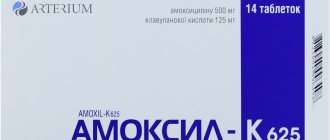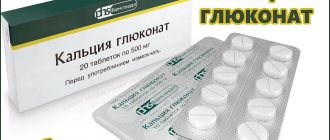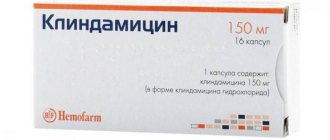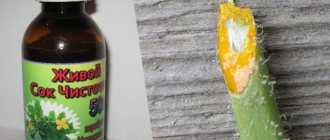Motherwort is an ancient medicinal plant. The herb was widely used in folk medicine in the Middle Ages. In those days, healers used the plant to normalize the heartbeat, relieve heaviness in the stomach, and for pulmonary diseases. The herb was taken in the form of water infusions, tea, alcohol tincture, and fresh juice. Only in the first half of the twentieth century did motherwort begin to be introduced into widespread medical practice, and quite successfully. Today, the herb is included in the Russian State Pharmacopoeia as a sedative and hypnotic. In addition to alcohol tincture, motherwort is produced in tablets.
Pharmacodynamics and pharmacokinetics
Motherwort is a herbaceous perennial plant, classified by botany into the Lamiaceae or Lamiaceae family. The generic scientific name of this plant translated from Latin sounds like “lion’s tail”, due to the distant similarity of the apical leaves with the tassel of a lion’s tail. Other common names are dog nettle (grass), heart grass , dead nettle, heart grass . From these names themselves, it becomes clear what motherwort helps with and for what diseases its medicinal properties will be useful.
Photo of the Motherwort plant
Motherwort herb, medicinal properties and contraindications
According to Wikipedia, in medical practice and folk recipes for the preparation of motherwort tincture, the benefits and harms of which will be discussed below, two types of this medicinal herb are used, namely: Motherwort Five-lobed (shaggy) and Motherwort Heart (ordinary), since the effects of other types of plants have been studied not good enough. The infusion is prepared from the dried upper parts of the plant, including flowers and leaves, for which the extractant can be ethanol ( ethyl alcohol ), more suitable for adult patients, or water (boiling water), which is the preferred solution base for children.
The medicinal properties and contraindications for motherwort tincture are dictated by the properties of the plant components included in the prepared raw materials. Dry motherwort herb includes alkaloids (stahydrine, leonuridine, choline , leonurine), beta-carotene , flavonoids ( quercetin , rutin , quinqueloside, cosmosin, quercimeritrin, hyperoside, etc.), leonuride, saponins , mineral salts (sulfur, potassium, sodium, calcium), approximately 5% tannins , vitamins (A, C, E), up to 0.05% essential oil, sugary and bitter ingredients, organic acids (citric, vanillic, malic, ursolic, tartaric), due to which similar effects occur valerian is sedative in nature .
Photo of motherwort grass
Motherwort is characterized by its positive effect on the functionality of the central nervous system, calming effects, potentiation of sleep (without a hypnotic effect), reduction of high nervous excitability , antagonism towards analeptics and their convulsive effects. The effectiveness of this remedy is observed in neurasthenia , psychoasthenia and neuroses occurring against the background of insomnia , a feeling of overexertion and increased reactivity. The drug is capable of correcting disorders of the nervous system of a functional nature that occur during premenopause and menopause .
Motherwort is also an effective remedy for blood pressure ( lowers blood pressure or increases blood circulation, heart rate and slows down the heart rate), is used for the prevention and treatment of cardiovascular pathologies ( angina pectoris , myocarditis, cardiosclerosis , palpitations, etc.), and is used for VSD ( vegetative-vascular dystonia ) to regulate heart rate.
The use of motherwort herb is useful in the treatment of gastrointestinal ulcers , painful menstruation, epilepsy , dyspeptic symptoms, thrombosis , bronchial asthma , Graves' disease , shortness of breath , uterine bleeding, paralysis , neuralgia , cough and other painful conditions in which its positive medicinal properties are manifested. The drug has a general strengthening, diuretic, antispastic and anti-inflammatory effect. In homeopathy it is used in case of patient complaints of flatulence , cardiac dysfunction and hyperthyroidism .
However, when using this herbal preparation, it is necessary to take into account not only the beneficial properties, but also the contraindications of motherwort, because often the benefits and harms of motherwort herb depend on the dosage of the remedy, the appropriateness of its use and the correctness of use. For example, motherwort in any form is contraindicated for pregnant women due to the increased threat of miscarriage , provoked by stimulation of uterine contractile function, for hypotensive patients due to a decrease in the drug , for women with heavy, prolonged menstruation , due to the possibility of their intensification. Alcohol tincture should not be taken by people suffering from alcoholism , and an aqueous solution and other motherwort preparations should not be taken by people with allergies .
What's included
The effect of therapy is due to the rich chemical composition of the core. The green mass contains:
- essential oils;
- tannins and sugars;
- diterpenoids;
- alkaloids;
- flavonoid glycosides;
- choline;
- ascorbic acid, keratin;
- phenolcarboxylic acids and their derivatives.
Fatty oils, stearic, linolenic, and palmitic acids were found in the seeds.
Indications for use
Indications for use of Motherwort tincture include:
- arterial hypertension in the initial stage;
- neurotic and asthenoneurotic painful conditions occurring with sleep disturbances ;
- neurocirculatory dystonia;
- feeling of irritability;
- neurasthenia;
- manifestations of vegetative-vascular dystonia ;
- tachycardia and increased excitability observed with hyperthyroidism ;
- neuroses of cardiovascular origin;
- vegetative neuroses during premenopause, accompanied by cardialgia , tachycardia and elevated blood pressure;
- mild sleep disturbances
- emotional excitement.
Contraindications
Contraindications to taking Motherwort tincture are:
- personal hypersensitivity ;
- pregnancy / lactation ;
- alcoholism (for alcohol tincture);
- ulcerative pathologies of the gastrointestinal tract during exacerbation;
- heavy/prolonged menstrual bleeding ;
- severe phase of arterial hypotension ;
- age up to 12 years.
You should take this medication with caution when:
- liver diseases;
- traumatic brain injuries;
- brain pathologies;
- in childhood (after 12 years).
Side effects
When taking Motherwort medicinal tincture, the following side effects may be observed:
- local allergic manifestations , most often expressed by redness , swelling of the skin and/or skin rash / itching (in case of personal hypersensitivity);
- feeling dizzy ;
- phenomena of dyspepsia ;
- fast fatiguability;
- daytime decrease in physical/mental performance;
- drowsiness.
Motherwort tincture, instructions for use
It should be remembered that you should not self-prescribe any sedative medications , which include motherwort herb. Before taking Motherwort tincture, you need to consult with your doctor, who, after conducting all the necessary research and the advisability of using this tincture, will recommend how to take it in drops and how many drops an adult patient or child should take. Also, if a patient is diagnosed with painful conditions associated with emotional arousal , the doctor can advise how to drink it to calm down.
Motherwort tincture drops are indicated for oral administration only, which is best taken approximately 30 minutes before meals. Patients of the adult age category (after 18 years) are recommended to take 30-50 drops of infusion 3-4 times every 24 hours. For children over 12 years of age, the dosage is calculated based on the ratio of 1 drop of alcohol solution per 1 year of life. The tincture can be taken either in pure form or diluted with water (¼ cup).
The duration of the therapeutic course is determined by the doctor individually, taking into account the degree and nature of the severity of the disease state, the characteristics of the pathological process, the patient’s personal response to the treatment and therapeutic effectiveness.
special instructions
It should be taken into account that the sedative effect develops slowly, with regular use of the drug for at least three weeks.
The absolute alcohol content in the maximum single dose is 550 mg, in the maximum daily dose – 2200 mg.
Impact on the ability to drive vehicles and complex mechanisms
Patients taking Motherwort tincture for a long time in high doses should take into account the likelihood of a decrease in the speed of psychomotor reactions, and therefore exercise extreme caution when driving all types of transport and working with complex mechanisms.
Analogs
Analogs of Motherwort tincture include medicinal preparations similar to it in their sedative and cardiotonic effects:
- Valerian (tincture, raw materials, tablets);
- Alora;
- Peony tincture;
- Bioson;
- Melissa (tincture, raw material);
- Antistress;
- Belisa;
- Hawthorn (tincture, raw material);
- Corvalol;
- Valemidin;
- Sonafit;
- Valdispert;
- Corvaldin;
- Dormiplant;
- Barboval;
- Sungmil;
- Valocormid;
- Tricardin;
- Karvelis;
- Menovalen;
- Korvaltab;
- Sedasen;
- Novo-Passit;
- Quiet;
- Persen;
- Sedavit;
- Phytosed;
- Donormil;
- Florised , etc.
Which is better – motherwort or valerian?
There is no clear answer to the question of which is better - motherwort or valerian . These medicinal plants are very similar in their main action and, by and large, differ only in some contraindications and the degree of their effectiveness. When choosing one of these therapeutic agents, the doctor, first of all, must be guided by the characteristics of the disease diagnosed in the patient and his individual response to the treatment, according to which a personal therapeutic regimen is selected.
In turn, both of these drugs are often mixed and recommended to be used together in different combinations of sedative medications, both factory-made and home-made. The most common folk recipe that receives positive reviews is the VKPBP , which includes five tinctures: peony
,
valerian , motherwort , corvalol , hawthorn .
Tincture of peony, hawthorn, motherwort, valerian, corvalol
Before taking motherwort , valerian , hawthorn , peony , Corvalol , you need to purchase these tinctures at the pharmacy and mix them in a dark glass vessel in equal proportions, for example, 25 ml each (in this case, you can limit yourself to 15 ml Corvalol ), after which take 10-15 drops orally every day (allowed with ¼ glass of water). In case of insufficient positive effect and in the absence of allergic manifestations, you can increase the daily dosage to 25 drops.
Reviews of a mixture of tinctures of valerian , motherwort , hawthorn , peony , Corvalol indicate a significantly greater sedative and cardiotonic effectiveness of this mixture, but also warn patients against its uncontrolled and excessive use, since such soothing drops not only multiply the positive properties of plants, but also potentiate their side effects.
Morphological description
Reaches a height of up to 2 m (usually 50-150 cm), has a straight tetrahedral stem, branching in the upper part. Beyond the inflorescences, the stem is bare or pubescent at the corners with appressed hairs. One plant has several stems.
The leaves have petioles and are dark green in color. The leaves above and below the shoot are not the same: the upper ones are oblong-rhombic in shape, whole, and the lower ones are five- or three-parted, cut to half, have wide wedge-shaped lobes with coarse-toothed edges of different sizes.
The flowers are zygomorphic and collected in false multi-flowered whorls in the axils of the upper leaves. The whorls form a discontinuous long apical inflorescence in the form of a spikelet. The calyx is bare, about 8 mm long, has a pronounced tube and consists of 5 teeth that end in a spiny point. The two lower teeth are larger and bent downwards. The corolla is five-membered, lilac-pink or pink in color, and larger than the calyx. Petals are soldered.
Inside the corolla tube is a hairy oblique ring. The upper lip has a solid edge, is elliptical in shape, densely hairy and slightly concave. The lower lip has well-developed lateral lobes. There are 4 fertile stamens collected under the upper lip - the upper ones are shorter than the lower ones. Anthers introsular. There is 1 pistil, with a superior ovary, represented by two carpels, in which false septa are formed as they mature, and the geneceum becomes four-membered. The stigma with two equal lobes is located on top of the style. Blooms all summer.
The fractional fruit consists of 4 nut-like parts, which after ripening have an olive-green color and a triangular pyramid-shaped shape, with hairs at the top. Ripens unevenly, from July to August. The seeds are characterized by high viability: germination remains up to 9 years.
Motherwort tincture during pregnancy (and lactation)
The question of whether pregnant women can take motherwort, and whether this drug can be taken while breastfeeding , certainly worries many women, since the state of their nervous system during these periods is not in the best condition and often requires external support. The answer to the question of whether it is possible to drink motherwort tincture during pregnancy and during breastfeeding (breastfeeding) can be found in the official instructions, in which these stages in a woman’s life are listed as contraindications to the use of the drug due to the inclusion of ethyl alcohol . However, as practice shows, not everything is so simple and for pregnant and lactating women there is a way out of this situation, which consists in taking an aqueous solution of motherwort or tablets based on it, reviews of which are positive even in these cases.
Tablets or water tincture of motherwort during pregnancy in the early stages, or in later periods, as well as during lactation , can be taken by women, and sometimes even recommended for use, in order to bring their nervous system into a proper positive state, contributing to the normal overcoming of this difficult time.
Reviews of Motherwort tincture
sedative herbal preparations are quite often discussed on the Internet , which, naturally, includes motherwort tincture, reviews of which in the vast majority of cases are completely positive. People who use this tincture, or the mixtures in which it is included, to maintain their nervous system in adequate condition, as well as to treat various heart disorders, note the high effectiveness of this remedy and the almost complete absence of negative side effects. Among the negative qualities, the most often mentioned are the bitter taste ethanol content .
It is precisely because of the alcohol base of motherwort tincture that most women are afraid of using it during pregnancy and breastfeeding , however, there are those who practice taking small doses of this drug and do not see this as a significant problem.
Beneficial properties of a tincture based on a medicinal plant
Pharmacists prepare alcoholic or water-containing solutions, tinctures and extracts based on medicinal herbs. It is simply dried and added to tea.
The medicinal plant is used to treat neurosis, epilepsy, intestinal disorders, hypertension, heart ailments and thyroid pathologies.
The useful plant has a rich biochemical composition, including:
- coumarins;
- organic acids;
- bitterness;
- essential oils;
- bioflavonoids;
- vitamin E and C;
- glycosides;
- tannins;
- carotene.
The plant is also rich in microelements, which effectively influence the functioning of all organs and tissues. The main thing is to use the herbal product correctly and adhere to the dosages recommended by the specialist.
Medicines with a healing extract are often prescribed for cardiosclerosis, prolonged depression, insomnia, and endocrine system disorders. Dry motherwort is added to tea to normalize the functioning of the central nervous system and eliminate insomnia.
Motherwort tincture is used to treat inflammation, burns and wounds, as the plant has a powerful regenerative and antimicrobial effect.










